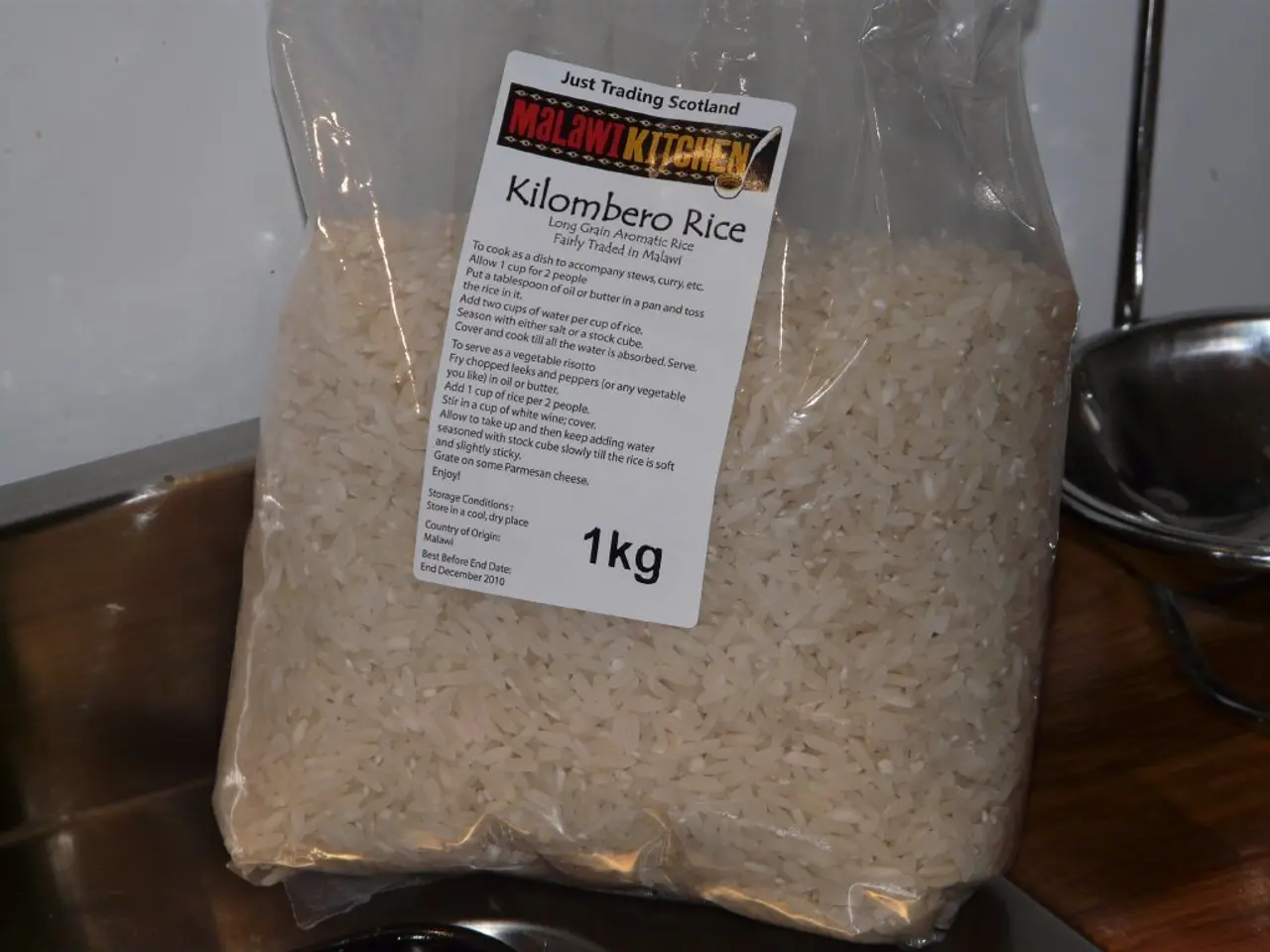Modi Praise Reforms in Agricultural Export Policies as Means to Enhance Farmers' Earnings
India's recent decision to remove minimum export prices (MEPs) for key commodities like basmati rice and onions is set to bring significant benefits to farmers, rural communities, and the broader economy.
### Improved Market Access and Export Opportunities
The removal of MEP restrictions grants Indian farmers and exporters greater freedom to sell their produce in international markets without being constrained by artificial price floors. This increased flexibility could lead to increased export volumes, higher revenues, and better profit margins, particularly for basmati rice, where prices were previously artificially high due to MEPs.
### Boost to Farmers' Livelihoods
With reduced export restrictions, farmers cultivating key export crops like basmati rice and onions can benefit from greater demand abroad, potentially receiving better prices due to access to a competitive global market. This enhanced income stability and reduced dependence on volatile domestic markets or government-imposed price controls.
### Stimulus to Rural Employment
Expanded exports in agriculture typically increase demand for labour in sowing, harvesting, processing, and transport sectors. This surge in rural employment opportunities can help alleviate rural poverty and support agrarian communities.
### Support for India’s Position in Global Markets
India is a dominant global exporter of rice, accounting for over 40% of world rice exports in 2022. Removing MEPs is expected to restore competitiveness lost during previous restrictive measures, potentially expanding India’s market share in key importing countries and contributing to foreign exchange earnings.
### Stabilization and Possible Reduction in Global Prices
Enhanced Indian exports after MEP removal can increase global supply, leading to stabilization or reduction in world commodity prices, which can benefit global food security, especially in import-dependent Asian and African countries.
### Potential Risks and Challenges
Despite the benefits, the removal of MEPs may lead to higher domestic prices for essential commodities like onions and basmati rice, potentially impacting food affordability for poorer households. Additionally, sudden shifts can risk domestic availability during periods of production shortfall or extreme weather events, possibly necessitating new policy interventions to balance exporter and consumer interests.
### Summary
In conclusion, the removal of MEPs for basmati rice and onions is likely to enhance farmers' incomes and rural employment by opening greater export opportunities and integrating Indian agriculture more deeply with global markets. This move supports India’s economic growth and global trade objectives but requires careful monitoring and policy coordination to prevent adverse impacts on domestic food prices and security.
Prime Minister Narendra Modi has praised the Indian government's changes to agricultural export policies, recognising their potential to significantly boost farmers' incomes. The changes also include the removal of import duties on edible oils to protect local oilseed farmers and foster local development.
To further support farmers, capacity-building programs are being introduced to encourage modern green practices and provide information on useful frameworks and methods. Improvements to the arrangement are being made to designate open business spaces in rural areas and support specific farming activities. Additionally, access to financial support, established creation organisations, electronic product advancement stages, and creation frameworks will help farmers become more proficient and efficient.
Investing in human expressions can stimulate the development of high-yield crop assortments that are resilient to environmental stressors, while fostering public-private partnerships can advance AgriTech initiatives aimed specifically at smallholder farmers. Enhancing infrastructure can include the development of virus chains, extra rooms, and passageways in business regions, and allocation of resources to regular foundations to limit post-amass ailments.
These changes are expected to create rural employment opportunities, encourage farmers to spend money on resources or information sources that promote efficiency, and stimulate local economies by creating jobs on farms and other industries.
The policy change allowing the removal of minimum export prices (MEPs) for basmati rice and onions could potentially lead to improvements in India's politics and policy-and-legislation, as it suggests a commitment to fostering a competitive agricultural sector within the broader context of general-news issues such as global trade and food security.
Furthermore, this move towards deregulation of key commodity exports might have political implications, as it signifies a shift towards pro-farmer policies and may bolster the ruling party's credibility with rural voters, who constitute a significant portion of the electorate.








